
Answer:
Some vitamins and nutrients are found in abundant quantities in meat, poultry and fish but not in plant-based foods (unless they have been "fortified," i.e., nutrients have been added). For this reason, vegetarian or vegan diets may not meet all the daily nutrient requirements, and supplements may be necessary. This may occur with vitamins B-12 and D, iron, zinc, calcium, iodine, long-chain omega-3 fatty acids and, possibly, protein.
Below are strategies for meeting daily nutrient requirements through dietary modifications or supplementation, and ways to find supplements that don't contain ingredients objectionable to people following vegetarian or vegan diets.
If you would like to get most of these nutrients from a single, vegan, supplement, see our Top Pick General Multivitamin for Vegans in our Multivitamin Supplements Review.
Vitamin B-12
Vitamin B-12 is found most abundantly in meats, poultry and fish. Cereals, milks, yogurts, and nutritional yeast that are fortified with B-12 may provide sufficient B-12 for vegetarians, but unfortified, plant-based foods are generally not good sources. Note that fermented soy (e.g., miso, tempeh), shiitake mushrooms, algae, and unfortified nutritional yeast are not considered reliable sources of B-12 (Plotnikoff, Nutrients 2023). However, nori, a type of seaweed, may help improve vitamin B-12 status among vegetarians, although there are concerns related to differences in levels of B-12 in nori samples, as well potentially excessive levels of iodine and heavy metals.
Consequently, people who are strict vegetarians or vegans may need to supplement with vitamin B-12. A 3-month study among vegans and vegetarians with marginal B-12 deficiency showed that supplementing with 50 mcg of sublingual B-12 daily or 2,000 mcg weekly could restore adequate B-12 levels. Among strict vegans, stopping supplementation can result in significant declines in blood levels of B-12 within 8 to 16 weeks (Storz, Nutrition 2024).
Keep in mind that B-12 will get absorbed just as well as from an oral tablet as sublingual tablets, and sublingual tablets and other specialty forms often contain sugar substitutes that can cause gas, bloating or diarrhea. See our Top Pick among B-12 supplements, as well as a suitable option for people wanting to avoid the cyanocobalamin form of B-12, although there is little scientific rationale for this concern (Plotnikoff, Nutrients 2023).
Iron
Most people are able to meet their daily nutrient requirement for iron by eating foods such as meat, poultry, and fish, as well as dried fruits, grains, and green leafy vegetables. However, since iron from plant sources is absorbed half as well as that from animal sources, strict vegetarians or vegans may need to consume almost twice as much iron from their foods, as other people, and this may be hard to get from foods alone. Cooking foods — especially acidic foods — in cookware made of iron, as opposed to other materials, can contribute some iron to the diet. However, a review of clinical studies evaluating use of iron cookware for increasing hemoglobin levels reported mixed evidence, with only about half of studies showing a significant benefit of iron cookware on hemoglobin levels, suggesting that iron cookware should not be used in place of dietary changes or iron supplementation to prevent or treat iron deficiency (Sharma, Nepal J Epidemiol 2021).
If you need to supplement with iron to meet your daily nutrient requirements, see our Top Pick among iron supplements.
Be aware that iron supplementation can cause constipation, nausea, diarrhea, stomach erosions and ulcers, so it is a good idea to have your hemoglobin and ferritin levels checked by your doctor before starting an iron supplement.
Zinc
Compounds called phytates occur in legumes and grains and can interfere with zinc absorption. Consequently, vegetarians and vegans may require as much as 50% more of the RDA for zinc than non-vegetarians. The RDA of zinc for adults is 11 mg for men and 8 mg for most women (women who are pregnant or breastfeeding need more), so men and women following a vegetarian or vegan diet may need closer to 17 mg and 12 mg daily, respectively, if obtained exclusively from food. Ensuring adequate zinc blood levels among vegetarians and vegans may be important for reducing susceptibility to viral infections.
Fortunately, following a well-planned vegetarian or vegan diet that includes good food sources of zinc and includes steps to reduce phytate intake should be sufficient to meet zinc requirements. Foods that are rich in zinc include soy, nuts, seeds and fortified cereals (Saunders, Med J Aust 2013). Although legumes, which are an important source of zinc, also contain phytates, some steps can be taken to reduce phytates in these foods. For instance, soaking legumes before cooking can help reduce the amount of phytate in these foods. Canned beans have been found to have phytate levels 70% to 90% lower than found in dried beans. However, be aware that soaking rice and other grains can lower phytate levels but also reduce levels of zinc by up to 30% (Lestienne, Food Chem 2005). Interestingly, laboratory evidence suggests that the availability of zinc from grains such as rice, and pulses such a chickpeas, may be increased when consumed with garlic or onion (Gautam, J Agric Food Chem 2010).
If you do need to take zinc supplements long-term to meet your daily nutrient requirements, it is generally considered advisable to also take copper at a dose of 1 to 3 mg daily, as excessive intake of zinc can interfere with the absorption of copper, leading to copper deficiency. See our Zinc Review for zinc supplements Approved by ConsumerLab that are suitable for vegans and vegetarians.
Calcium
While calcium can be obtained from various vegetarian- and vegan-friendly foods, including soybeans, white beans and tofu, some research has found that vegan diets are associated with inadequate calcium intake (Clarys, Nutrients 2014). Another study found that middle-aged and older women (but not men) who followed a vegan diet and did not take supplemental calcium and vitamin D had three times the risk of hip fracture compared to non-vegetarians.
Consequently, for vegans (or vegetarians) whose dietary intake of calcium is not adequate (RDA of calcium for adults is 1,000 mg daily for women up to 50 and men up to 70, and 1,200 mg daily for older men and women), it might be a good idea to supplement with a moderate amount of calcium — but no more than 300 to 500 mg per serving. See our Top Picks for calcium supplements, which include some that are vegan-friendly.
Vitamin D
While adequate vitamin D can be often be obtained simply through adequate sun exposure, factors such as skin pigmentation, clothing coverage and sunscreen use, age, and location (latitude) of an individual can affect the extent of skin production of vitamin D. Some research has found that following a vegan or vegetarian diet that does not include vitamin D supplements or fortified foods is associated with low vitamin D intake and low blood levels of vitamin D (Craig, J Am Diet Assoc 2009). Consequently, vitamin D supplements may be necessary for some individuals.
Vitamin D can be found in dietary supplements in the D2 or D3 form. Either form can be obtained inexpensively, and both can raise blood levels of vitamin D, although some, but not all, research suggests that vitamin D3 may be more effective. The D2 form may also cause erroneously low vitamin D blood test results. For these reasons, if you need to take a vitamin D supplement, it seems prudent to use the D3 form.
Be aware that vitamin D3 in supplements is often synthesized from lanolin (an animal source) and sold in capsules made from gelatin (also from animals), and thus may not be suitable for vegans. However, some vitamin D3 supplements contain D3 from lichen, which is vegan-friendly although it may be more expensive. You can find such a product in our Vitamin D Supplements Review.
Omega-3 fatty acids
The only type of omega-3 fatty acid that is considered essential is ALA (alpha-linolenic acid), and vegans and vegetarians tend to get sufficient amounts, as it is found in seed oils, such as flaxseed oil.
Although not considered essential, two other omega-3 fatty acids, eicosapentaenoic acid (EPA) and docosahexaenoic acid (DHA), are generally obtained from oils from marine sources, such as fish, krill, and algae. These may have benefits due to their anti-inflammatory properties. Vegetarians tend to consume limited amounts of EPA (<5 mg daily) and DHA if eggs are excluded from the diet (Davis, Am J Clin Nutr 2003). See our Top Pick for getting omega-3s from algal oil.
For more details about forms of omega-3 fatty acids for vegans and vegetarians, see our CL Answer about vegan-friendly sources of EPA and DHA.
Iodine
Iodine is necessary for proper functioning of the thyroid gland, which regulates metabolism in our bodies, and is also necessary for normal brain development in children during pregnancy and infancy. Fish and other seafoods, as well as dairy foods, are good sources of iodine, but be aware that almond, soy, oat, and other plant-based milks provide very little iodine.
Seaweeds, such as kelp, and iodized salt are also good sources, but be aware that if you are using kelp as a source of iodine, one absorbs only about half as much iodine from kelp as from an iodine supplement containing potassium iodide. Also, note that most specialty salts are not iodized.
See the amounts of iodine we found in kelp and other seaweed products — but also note the amounts of toxic heavy metals we found.
Protein
Vegetarians and vegans (including those who are athletes) can meet protein requirements with plant proteins. However, vegetarian diets often contain less protein than non-vegetarian diets. Also, vegetarian diets that are mainly limited to just one protein source may require greater protein intake to meet essential amino acid needs, as some plant-based proteins contain low amounts of one or two essential amino acids (for instance, rice and wheat protein have low lysine content) (Craig, J Am Diet Assoc 2009; Marsh, Med J Aust 2013). For people following such diets, adding a complementary plant protein that contains higher amounts of the amino acids in question may be beneficial. This may be done, for example, by combining a grain-based protein, like rice, with a legume-based protein, like pea protein. Keep in mind that "strict protein combining" in which different plant-based proteins are eaten at each meal is not considered to be necessary, as long as a variety of plant proteins are eaten each day (Marsh, Med J Aust 2013). Research has shown that soy and pea protein, or a combination of soy, rice and pea protein, can be beneficial for maintaining or building muscle mass.
Although textured soy products, such as tofu, and protein supplements are processed foods, a preliminary study in Brazil among 558 vegan adults (mostly female) suggested that those who incorporated such products into their diets were less likely to be at risk of inadequate protein intake than those who did not consume such products. The study, however, was based only on a 1-day dietary survey (Leitao, JAMA Netw Open 2024).
Be aware that tofu may contain a small amount of cadmium (see our article about heavy metals for details). Also see our Protein Supplements Review for our Top Picks among protein supplements, including those suitable for vegans and vegetarians. Also see our article about protein supplements for vegans. Be aware that branched-chain amino acid supplements provide some of the essential amino acids that the body needs, but won't provide all of them.
Other Nutrients to Consider
Riboflavin (vitamin B-2) is obtained from milk, meat, poultry, and fish. It can also be obtained from nuts such as almonds, dark leafy green vegetables, and “enriched” breads, grains and cereals that have been fortified with riboflavin. Although extremely rare, vegans and vegetarians are at greater risk of riboflavin deficiency compared to those who consume meat and dairy. This is particularly true for women taking hormonal birth control (which may interfere with riboflavin absorption), and those who are pregnant or lactating (who have increased requirements for riboflavin). Infants whose mothers are deficient during pregnancy can also experience adverse effects.
Unfortunately, it is difficult to find a riboflavin supplement that provides only the recommended daily amount, as most provide 1000% or more of the Daily Value, so getting adequate amounts from natural and fortified food sources may remain the best option for vegans and vegetarians without a deficiency. In addition, some multivitamins can provide reasonable, moderate doses of riboflavin. See our Top Picks among multivitamins and prenatal vitamins. For those who are deficient or require high-dose riboflavin, see our Top Pick riboflavin supplement.
Taurine is an amino acid important to high energy tissue, such as the brain, retina, and muscles. Our bodies can make taurine from other nutrients, so there is no dietary requirement for taurine, although it can also be obtained directly from meat, poultry, eggs, dairy products, and fish. Seaweeds, such as nori, contain very small amounts of taurine, but it is unlikely that a person would consume enough seaweed to provide the amounts obtained from a typical omnivorous diet (Terriente-Palacios, Food Chem 2022). Low levels of taurine in the body occasionally occur when diets do not provide enough of the building blocks for making taurine, or taurine itself, as can sometimes occur in vegetarians — although it is not known if this is clinically significant. See our Taurine Supplements Review for our list of approved taurine supplements, which includes an Approved product that is suitable for vegetarians and vegans.
Selenium deficiency is rare in the U.S. but more common in the U.K. and other parts of Northern and Central Europe, where the soil is depleted of selenium, resulting in lower amounts in plant-based foods. In these countries, meat and dairy products are the main source of this mineral (Gibbs, Dietetics 2024). See our Selenium Supplements Review for more information, our tests of products, and our Top Pick among selenium supplements. (Brazil nuts can also be a good source of selenium, with one nut providing the recommended daily intake for selenium.)
Long-term vegetarians tend to have lower muscle levels of carnosine compared to omnivores. Because carnosine affects muscle function, supplementation to boost carnosine muscle levels is often recommended for vegetarians and vegans purportedly to reduce muscle fatigue and improve exercise performance (Rogerson, J Int Soc Sports Nutr 2017). Experts typically recommend beta-alanine supplementation, a precursor to carnosine, instead of carnosine supplementation itself due to lower bioavailability of carnosine. Beta-alanine seems to improve exercise performance but might not reduce fatigue. See our article about Carnosine for more details, including typical dosing of beta-alanine used to boost muscle carnosine levels.
Join today to unlock all member benefits including full access to all CL Answers and over 1,400 reviews.
Join NowAlready a member? Sign In Here.
Join now at www.consumerlab.com/join/

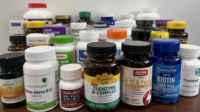
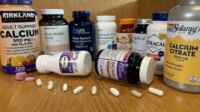

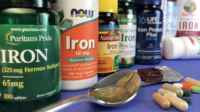
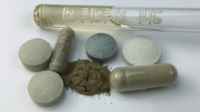

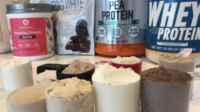
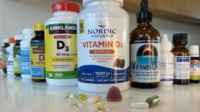
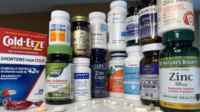
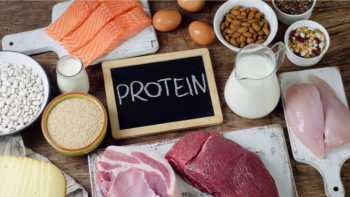





Submit your comment
This feature is restricted to active members.
Join now to add comments and get all member benefits, including over 1,400 reviews.
Join NowAlready a member? Sign in here.